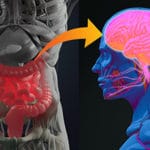If you have been struggling with digestive problems, you may be wondering if you have IBS or IBD. It can be difficult to tell the two conditions apart, but there are some key differences. In this article, we will discuss the differences between IBS and IBD, including their symptoms, causes, and treatment options.
What is IBS?
Let's start by looking at IBS. IBS, or irritable bowel syndrome, is a chronic condition that affects the digestive system. If you have IBS, you'll most likely experience a combination of abdominal pain, cramping, bloating, gas, diarrhea, and constipation, but different people experience different sets of symptoms. Having to deal with IBS can be a very frustrating, annoying, and uncomfortable experience, but it's not a life-threatening condition and your symptoms can often be managed with lifestyle changes and medication.
What is IBD?
Now let's take a look at IBD. IBD, or inflammatory bowel disease, is also a chronic condition that affects the digestive system. However, it is more serious than IBS and can be life-threatening. IBD is characterized by inflammation of the intestines, which can lead to abdominal pain, cramping, bloating, gas, diarrhea, and constipation. While that sounds almost exactly like IBS, IBD can also cause you to lose weight, feel fatigued, and develop seemingly random fevers. Treatment often includes medication, surgery, and lifestyle changes.
Who is at risk for IBS and IBD?
There are a few risk factors that can increase your chances of developing IBS or IBD. These include:
- Family history: If you have a family member with IBS or IBD, you are more likely to develop the condition.
- Location: IBD tends to be more common in temperate climates while IBS is prevalent internationally.
- Gender: Women are more likely to develop IBS, while IBD affects men and women equally
- Stress: Stress can trigger IBS symptoms and may also play a role in the development of IBD.
What causes IBS and IBD?
The exact cause of IBS is unknown, but it is thought to be related to a combination of psychological and physical factors. These may include stress, anxiety, hormonal changes, food sensitivities, and a malfunctioning digestive system.
Unfortunately, IBD is no different as the cause is also unknown, but it is thought to be related to an abnormal immune response. This may be due to a combination of genetic and environmental factors.
Treatment options for IBS and IBD
There is no cure for IBS or IBD, but there are treatments that can help to manage the symptoms. For IBS, these may include lifestyle changes, such as stress management and dietary modifications, as well as medication. You'll need to work with your gastroenterologist to develop a personalized care plan.
For IBD, treatment often includes medication, surgery, and lifestyle changes. The type of treatment will depend on the severity of the disease and the individual's symptoms. Medication may include anti-inflammatories, immunosuppressants, corticosteroids, and biologics. Your gastroenterologist may also recommend receiving medications through an infusion. Surgery may be an option for people with IBD who do not respond to medication or have a complication such as a blockage in the intestines.
The differences between IBS and IBD
Now that you know a little bit about IBS and IBD, let's recap the key differences between these two conditions:
- IBS is not a life-threatening condition, while IBD can be.
- IBS is characterized by abdominal pain, cramping, bloating, gas, diarrhea, and constipation, but varies from person to person.
- IBD is characterized by inflammation of the intestines, which can lead to abdominal pain, cramping, bloating, gas, diarrhea, and constipation.
- IBS affects women more than men, while IBD affects both genders equally.
- IBS is commonly experienced everywhere while IBD is more common in temperate climates.
- IBS can often be managed with lifestyle changes and medication.
- IBD often requires medication, surgery, and lifestyle changes.
Northeast Digestive can help
If you think you may have IBS or IBD, it's important to see a gastroenterologist so they can make a diagnosis and develop a treatment plan that's right for you. To learn more about these conditions and the best treatment options for you, reach out to the experts at Northeast Digestive. We'll be happy to answer any of your questions and help you take control of your digestive health.




